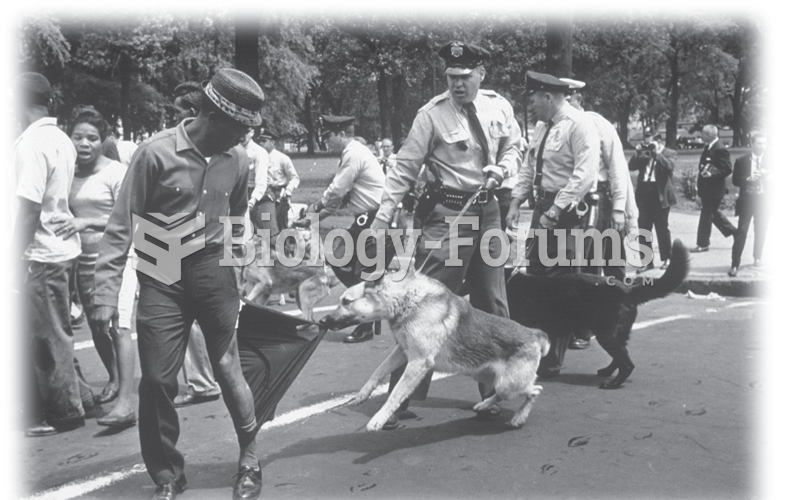|
|
|
Only 12 hours after an egg cell is fertilized by a sperm cell, the egg cell starts to divide. As it continues to divide, it moves along the fallopian tube toward the uterus at about 1 inch per day.
Astigmatism is the most common vision problem. It may accompany nearsightedness or farsightedness. It is usually caused by an irregularly shaped cornea, but sometimes it is the result of an irregularly shaped lens. Either type can be corrected by eyeglasses, contact lenses, or refractive surgery.
The effects of organophosphate poisoning are referred to by using the abbreviations “SLUD” or “SLUDGE,” It stands for: salivation, lacrimation, urination, defecation, GI upset, and emesis.
Acetaminophen (Tylenol) in overdose can seriously damage the liver. It should never be taken by people who use alcohol heavily; it can result in severe liver damage and even a condition requiring a liver transplant.
There are more sensory neurons in the tongue than in any other part of the body.
 Richard Rodriguez represents millions of immigrants—not just those of Latino origin but those from ...
Richard Rodriguez represents millions of immigrants—not just those of Latino origin but those from ...
 This photo, taken in Birmingham, Alabama, provides a glimpse into the determination and bravery of ...
This photo, taken in Birmingham, Alabama, provides a glimpse into the determination and bravery of ...





